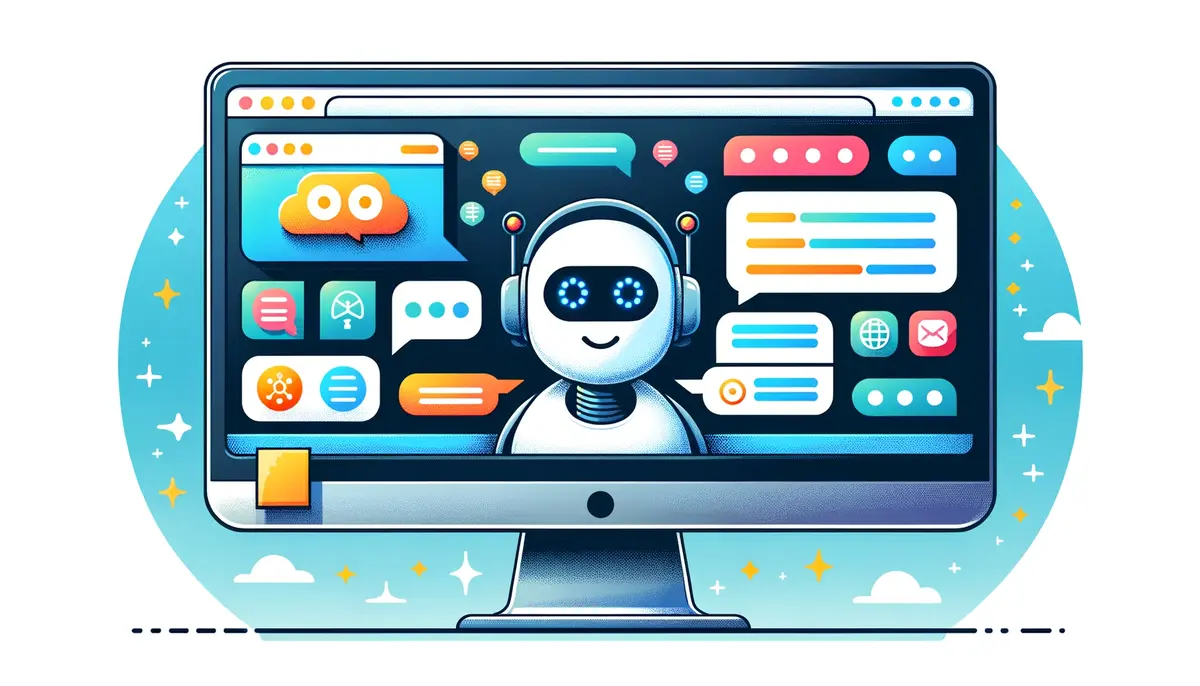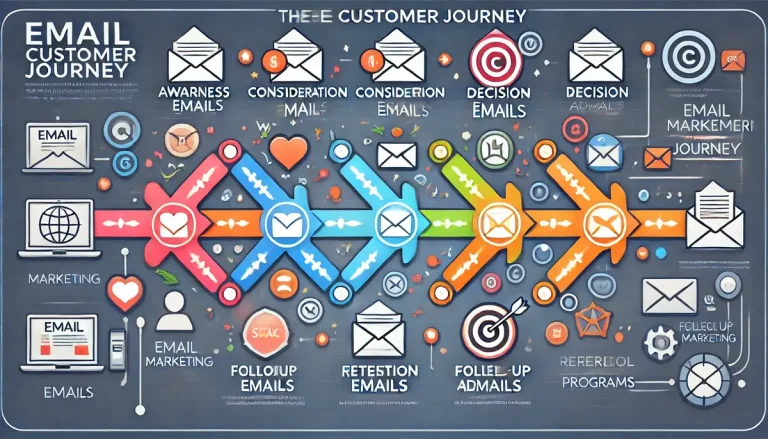
Did you know that over 60% of businesses with chatbots use them primarily to qualify leads? This substantial adoption highlights the critical role of AI in modern sales strategies, especially in streamlining processes that once bogged down teams with inefficiencies.
Chatbots not only revolutionize how sales teams operate but also enhance how leads are managed and nurtured throughout the sales funnel.
In today’s competitive market, the speed and accuracy with which sales teams identify and process potential customers can make or break a business. Traditional methods of lead qualification, often cumbersome and error-prone, are giving way to innovative solutions that promise not only to save time but also to improve the quality of leads.
This is where the power of chatbots comes into play. By automating initial interactions, chatbots qualify leads with precision, ensuring that sales teams spend their time on leads most likely to convert.
Moreover, chatbots support sales teams beyond just the initial qualification. They provide a continuous, seamless communication flow and are instrumental in carrying out high-powered sales campaigns effectively.
With these AI-driven tools, businesses are witnessing a transformation in their sales processes, achieving better results with less effort.
Boost your sales and support teams with Bigly Sales
Learn More
What is Lead Qualification?
What exactly is lead qualification, and why is it a cornerstone of successful sales strategies? Simply put, lead qualification is the process of determining whether potential customers are likely to become actual customers based on specific criteria such as their needs, budget, and decision-making power.
This process is vital because it helps prioritize the sales team’s efforts on leads that are most likely to generate revenue, ensuring that resources are allocated efficiently.
Historically, this process involved sales teams manually reviewing each prospect, a method not only time-consuming but also fraught with potential for human error.
Sales representatives would engage in initial conversations—often referred to as discovery calls—to gather crucial information that could influence the outcome of a sale. They’d ask probing questions to uncover needs, assess the fit, and predict the lead’s chances of progressing through the sales funnel.
However, this manual approach has significant downsides. It is inherently slow, limits the number of leads that can be handled at one time, and is susceptible to inconsistencies in how information is recorded and interpreted.
These limitations can lead to bottlenecks that hinder a team’s ability to scale its efforts effectively. As businesses grow and the volume of potential leads increases, the need for a more efficient system becomes critical.
This is where AI, specifically chatbots, steps in to transform the landscape. By automating the lead qualification process, chatbots qualify leads swiftly and with a high degree of accuracy. They apply consistent criteria to evaluate each lead, eliminating human bias and error, and enabling sales teams to handle a larger volume of leads without compromising quality.
Furthermore, chatbots support sales teams by freeing up human agents to focus on more complex and nuanced aspects of the sales process. Instead of spending hours on preliminary data collection, sales professionals can dedicate more time to crafting personalized follow-ups, deepening customer relationships, and closing deals, which are activities that invariably lead to higher conversion rates.
The Role of Lead Qualification Bots
As businesses strive to innovate and improve their sales processes, lead qualification bots are emerging as game changers. What exactly is a lead qualification bot?
It is an AI-powered tool embedded within your sales platform that streamlines the process of filtering and prioritizing potential customers. These bots are not just digital assistants; they are strategic assets that can significantly increase the efficiency and effectiveness of your sales force.
Lead qualification bots work by using a set of predetermined criteria—defined by your business goals—to automatically engage with and assess potential leads. This process typically involves a series of programmed questions designed to extract essential information such as the prospective customer’s budget, authority, needs, and timeline (BANT).
This automation ensures that every lead is uniformly evaluated, which helps maintain high data quality and reduces the likelihood of human error.
Here’s how these bots can revolutionize your sales process:
- Continuous Availability: Unlike human agents, chatbots don’t need to sleep. They can qualify leads 24/7, ensuring that your business never misses out on a potential customer due to timing.
- Scalability: Chatbots can handle thousands of interactions simultaneously. This capacity makes them particularly valuable for businesses experiencing high lead volumes and looking to scale operations without proportionately increasing their workforce.
- Data Accuracy: With their ability to methodically collect and analyze data, chatbots minimize the errors often associated with manual lead qualification. This precision supports sales teams in making informed decisions quickly.
- Personalized Interactions: Although automated, today’s advanced chatbots are capable of delivering personalized experiences to potential leads. By analyzing responses and user behavior, chatbots can tailor conversations to better fit the individual’s needs and interests, enhancing the engagement level.
By incorporating these intelligent systems into your sales strategy, chatbots support sales teams not only by qualifying leads but also by allowing sales professionals to focus on nurturing relationships and closing deals. This shift in focus from quantity to quality in lead management can dramatically improve a team’s productivity and success rates.
How Chatbots Qualify Leads
Understanding the mechanics behind how chatbots qualify leads is key to appreciating their value in the sales process.
These sophisticated tools are designed not just to automate tasks but to enhance the efficiency and effectiveness of lead qualification, ensuring that your sales team can focus on the most promising prospects.
Step-by-Step Process of Chatbot Lead Qualification
- Initiating Conversations: The journey begins when a chatbot initiates a conversation or responds to a visitor’s inquiry on your website. This proactive engagement ensures that every visitor is attended to, increasing the chances of capturing qualified leads.
- Gathering Information with Predefined Questions: Using a carefully crafted set of questions, chatbots inquire about key details such as contact information, budget constraints, specific needs, and the timeline for purchase. These questions are not random but are strategically designed to gather the necessary data to evaluate a lead’s potential.
- Validating Responses: As responses come in, the chatbot assesses them for consistency and accuracy. It flags any answers that require further clarification, ensuring that only reliable data is passed on to the sales team.
- Analyzing Data: Leveraging natural language processing technologies, chatbots analyze the responses to understand the underlying intent and sentiment. This analysis helps in determining how well a lead fits your business’s customer profile.
- Evaluating and Scoring Leads: Some chatbots are equipped to score leads based on their responses automatically. This scoring helps prioritize leads, allowing your sales team to focus first on those most likely to convert. Others simply sort the information, making it easier for sales professionals to perform the evaluation.
- Storing and Managing Data: Finally, all the data collected by the chatbot is stored in a secure database. This information is then made accessible to sales teams, who can use it to follow up with leads already warmed up by the initial chatbot interaction.
Why This Matters
The ability of chatbots to handle these tasks with remarkable speed and accuracy is a significant advantage. It means that chatbots not only support sales teams by handling the routine and repetitive parts of lead qualification but also enhance the overall customer experience. Prospects are engaged quickly and efficiently, which helps maintain their interest and increases the likelihood of a sale.
Furthermore, by automating these initial stages, chatbots free up your sales team to devote more time to what they do best: building relationships and closing deals. This not only makes your sales process more efficient but also more effective, as your team can concentrate on the highest-quality leads.
Setting Up a Chatbot for Lead Qualification
Integrating a chatbot into your sales process might seem daunting, but with the right approach, it can be straightforward and highly beneficial.
Here’s how to set up a chatbot to qualify leads and support your sales team, ensuring that your sales machinery runs more smoothly and efficiently.
Six Steps to Implement a Lead Qualification Chatbot
- Define What a Qualified Lead Looks Like: Start by clarifying your ideal customer profile (ICP). This profile should include detailed characteristics such as pain points, budget, buying authority, and decision timelines. Understanding what qualifies someone as a viable lead will guide your chatbot in screening prospects accurately.
- Choose the Right Chatbot Software: The effectiveness of a chatbot depends significantly on the software you choose. Select a chatbot that integrates seamlessly with your existing tech stack, especially your CRM. Ensure the chatbot can handle complex queries and has capabilities for natural language processing to mimic human-like interactions.
- Create a List of Qualifying Questions: Based on your ICP, develop a series of questions that will help your chatbot determine whether a lead is qualified. Use frameworks like BANT (Budget, Authority, Need, Timeline) to structure these questions. This step is crucial because the quality of questions directly affects the quality of lead qualification.
- Design a Conversational Flow: Map out how interactions should unfold. This involves scripting a conversation that feels natural and covers all necessary topics without overwhelming the lead. The flow should also adapt based on the lead’s responses, providing personalized pathways through the qualification process.
- Integrate with Other Lead Management Tools: To maximize efficiency, integrate your chatbot with other tools used by your sales team. This includes CRM systems, email marketing software, and any other platforms involved in lead nurturing and tracking. Integration ensures that data flows seamlessly across your sales ecosystem, enabling better tracking and management of leads.
- Establish Lead Scoring Criteria: Decide how to score leads based on the information the chatbot collects. This could involve setting up a scoring system within your CRM or utilizing the chatbot’s own scoring algorithms. A good scoring system helps prioritize leads, allowing your sales team to focus their efforts where they are most likely to pay off.
The Benefits of a Well-Implemented Chatbot
By carefully setting up a chatbot for lead qualification, you’ll not only streamline the intake and management of new leads but also enhance the operational capacity of your sales team.
Chatbots qualify leads without bias, ensuring that only those most likely to convert are forwarded to your team. This targeted approach means that your sales professionals can spend more time engaging deeply with well-qualified prospects, significantly boosting conversion rates and overall sales performance.
Additional Benefits of Chatbots in Sales
While chatbots play a pivotal role in qualifying leads, their utility in the sales process extends far beyond initial engagements. These AI-driven tools offer numerous additional benefits that can transform your sales strategy, making it more efficient and effective. Let’s explore how leveraging chatbots can enhance various aspects of your sales operations.
Beyond Lead Qualification
- Lead Nurturing: Chatbots are not only great at initiating contact; they excel in maintaining ongoing conversations that nurture leads through the sales funnel. By providing timely information and answering questions at any point in the customer journey, chatbots keep potential customers engaged and interested in your offerings.
- Lead Routing: Once a chatbot qualifies leads, it can also help route them to the appropriate sales or marketing team based on specific criteria, such as product interest or geographic location. This ensures that leads are handled by the team member best equipped to close the sale, improving overall efficiency and effectiveness.
- Immediate Responses: One of the standout features of chatbots is their ability to provide immediate, 24/7 responses to inquiries. This capability is crucial in today’s fast-paced market, where a delayed response can mean the difference between closing a sale and losing a potential customer.
- Cost Savings: Automating routine tasks with chatbots can significantly reduce labor costs associated with lead handling. By taking over the initial stages of contact and qualification, chatbots allow your sales team to focus on higher-value activities that require human interaction, thereby optimizing your resource allocation.
- Lead Data Collection: Chatbots gather rich data from their interactions with leads, which can be invaluable for refining sales strategies and understanding customer needs. This data includes detailed insights into customer behavior, preferences, and pain points, helping your team to tailor their sales approaches more effectively.
- Higher-Quality Leads: By using precise, predefined criteria to qualify leads, chatbots ensure that your sales team focuses their efforts on prospects who are more likely to convert. This leads to a higher quality of leads entering your sales pipeline, which can increase conversion rates and drive more revenue.
Transforming Sales with AI
The integration of chatbots into your sales process can lead to more than just operational efficiencies; it can transform how your sales team interacts with potential customers. With chatbots, your team is better equipped to meet the demands of a modern sales environment, where speed, accuracy, and personalization are key to winning customers.
Moreover, as chatbots continue to evolve, they are becoming more adept at mimicking human-like interactions, making them even more integral to a seamless customer experience. Whether it’s qualifying leads, nurturing prospects, or collecting valuable sales data, chatbots are an indispensable tool in the arsenal of any forward-thinking sales team.
Boost your sales and support teams with Bigly Sales
Learn More
Conclusion
Throughout this discussion, we’ve explored the transformative power of chatbots in redefining the sales process. From the initial qualification of leads to nurturing and routing them through the sales funnel, chatbots play a crucial role in enhancing the efficiency and effectiveness of sales teams.
They not only support the rigorous demands of lead management but also introduce a level of precision and personalization that was previously hard to achieve.






